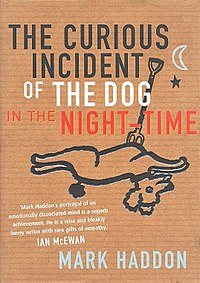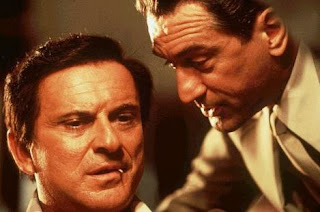I decided to write in one blog about two books because both have to do with the same moral issue. Suicide. Each novel, "The Bell Jar" and "The Virgin Suicides" depict the same issue but in very different perspectives. The first story is told in first-person, the other in third-person. The first, a description of Esther Greenwood's personal journey towards this devastating outcome, the second, an investigation by a few neighbor boys to discover what really happened to the 5 young girls they new from childhood that led them to take their lives. Both stories are sad and depressing but it is an unfortunate occurrence we see often in our lives, whether on the news or personal experience. The most common statements I hear about suicide is that it's selfish. I agree, but can I tell a girl who was kidnapped into sex trafficking, having to endure such vileness, that living through that is better than death? Or a child locked in a cage starving and neglected that her life is worth living and that suicide is not an option? I thank God I haven't been in a situation bad enough to look at death as a sweet friend. Our beliefs are molded by our life experiences and upbringing. There are other cultures that view suicide for a good cause worthy of great praise and honor. I don't agree with their motives at all but these cultures look at us with the same criticism. I just say sometimes we need to set aside preconceived notions and allow ourselves to look at these issues from a different perspective. Saying to someone who tried to commit suicide that they are selfish doesn't really help anybody does it?
"The Bell Jar" by Sylvia Plath is a novel about Esther Greenwood's life told from her point of view. Both Sylvia's and Esther's lives parallel each other to the point "The Bell Jar" in essence is considered an autobiography. Sylvia's early fame in winning a Pulitzer Prize for poetry and Esther's early achievement chosen as a guest editor for a fashion magazine; all expenses paid and in the company of other bright and successful men and women. The joy Esther assumed she would feel from this achievement didn't bear fruit. The feelings she had suppressed: fear, doubt, insecurities, all floated back to the surface. Thoughts she never wanted to revisit again, buried for good.
I remember senior year of high school, ready to move toward the next stage of life. Being an ADULT. This means making decisions for my future. What college will I attend? What career will lead me down the path of ultimate happiness? My future was like a blank canvas. I heard others talk as though they knew exactly what they wanted. Their canvas had already formed a clear picture. I looked at mine and felt fear. Scared of where each decision will lead. Will I make a wrong choice and BAM stuck at a dead end, lifeless job.
The example I loved in Sylvia's story, "The Bell Jar" was of a fig tree that bore fruit. Each fig on the tree represented a path in life. Every moment she waited to make a decision a fig would fall to the ground and decompose. A path that will never be fulfilled. Can you imagine the anxiety she felt? Sometimes the fear of failure can lead to inactivity. Others jump into a decision too hastily which may result in a bad decision too. Both can lead to a potential satisfied or dissatisfied life. This dilemma was what Esther faced. She commented that she was stuck in between what she should do and shouldn't do. She chose to do neither. When we usually say pick between A or B and we choose C. Hmm...Perhaps suicide is for some "Option C" like Sylvia Plath whom eventually did take her life.
What I got from reading this story is I should decide to be content with whatever direction I choose for myself. To not fear the future but to welcome it like a newborn baby. It's ok to dream and have hopes but recognize they may never come to fruition, so I need to be joyful in the few that do become fulfilled.
"The Virgin Suicides" movie
"The Virgin Suicides" by Jeffrey Eugenides however isn't just about the 5 girls suicide as much as how it has affected those around them. The story begins as it ends, with the girls' suicides. The authors, "Let's get this investigation out in the open right away, the girls killed themselves." Now what?? This isn't a CSI episode figuring out who did it. We know. It's all about what compelled these girls to commit suicide. Jeffrey ushers the reader through multiple theories. If you have any preconceived notions of the role parents, society, friends, neighbors, and ourselves have on events like this he brings that bias out of you. It interested me while reading how I immediately pointed at a specific target as the cause. However in the end the author's goal was to show that everyone plays a role in the quality of another's life. A parent's idea of sheltering their kids early on to prevent outside influence isn't full proof. As a child we should hold ourselves accountable to our actions regardless of our previous experience. As neighbors and society in general we are partly responsible for the way the world is today. Our major concern is for our own well being and to take care of our stuff and to accumulate stuff while our neighbors endure suffering. We like to say that this world is the way it is because we have taken God out of the picture, but I believe Jeffrey points to the fact we failed each other first. Does our involvement in each other's lives change the suicide rate? Jeffrey does recognize that some people are predisposed to suicide. That each of us may already have one chamber loaded in the gun. These girls had the whole gun loaded with each element contributing to their ultimate death.
The topic of both novels has been sad and depressing to examine, but I have learned something valuable after reading them. I'm glad it's over though.



















